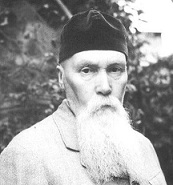Chicago : The death of Dev Anand just days before he was set to launch the first book about his pioneering movie production house Navketan is expected to give it poignant relevance.
“Dev Anand was really looking forward to launching the book. Although one is saddened that that is not to be, I think in a sense his passing gives the book even greater relevance because it is a way of celebrating the achievements of a remarkable man,” Sidharth Bhatia, a seasoned journalist and the author of “Cinema Modern – The Navketan Story” (HarperCollins, 180 pages, Rs.1,999), said in a telephone interview.
The book traces the history of what has perhaps been India’s most progressive movie production house, telling the fascinating story of three brothers — Dev, Chetan and Vijay – at the dawn of the country’s independence successfully putting their spin on the birth of a new nation.
Founded in 1949 by Dev Anand and elder brother Chetan, Navketan notched up impressive successes in movies such as “Baazi”, “Taxi Driver”, “Funtoosh”, “Kala Pani”, “Hum Dono”, “Jewel Thief”, “Tere Ghar ke Saamne”, “Hare Rama Hare Krishna” and the overarching “Guide”. Most of the Navketan themes were decidedly urban, not preachy and ideologically weighed down by rural idealism that characterised some of their contemporaries.
The trio landed with their feet on the ground rather early in the Navketan story. Bhatia attributes that to the fact that “the Anands were smart, educated people. They had their share of struggle, but they had a wider, fresher worldview.
“Chetan Anand had studied for the ICS (the elite Indian Civil Service), the brothers had both gone to the prestigious Government College in Lahore. They mixed with a very smart, intellectual lot. So they saw how things in the industry were changing and moved quickly.”
Bhatia explains the predominance of urban themes in Navketan movies saying: “It was their background and their sensibility…Their father was a great believer in British educational experiences. They mixed in Lahore with the smart young set. The Anands and their friends were heavily influenced by Hollywood. They thought urban, not rural.”
Navketan seemed to create a genre that was free from a colonised mindset.
What separated Navketan movies from the other comparable production houses was that it stayed away from what Bhatia calls the “national project”, which involved the village in some form or the other.
“India was rural dominated and Gandhiji had spoken about India being a land of villages. So this preoccupation was natural. The Anands looked at the world differently,” he says. That difference manifests itself in the way their movies tackled urban themes; but Bhatia disagrees that they conveyed a sense of settled urbanity.
“In fact, their sense was of unsettled life in the city – poor migrants, people eking out a living at the margins, the underbelly. Hollywood was experimenting with film noir. I call the Anands’ early films Bombay Noir,” he says.
One particularly remarkable feature of the Navketan films has to be its progressive treatment of female characters.
“The women in Navketan films were characters all their own. Even, and especially the ‘vamps’, were interesting and beguiling characters. Geeta Bali in ‘Baazi’, Sheila Ramani in ‘Taxi Driver’, Tanuja in ‘Jewel Thief’ — all these were independent women confident of their sexuality.
“Rosy in ‘Guide’ is in a class of her own; she leaves her husband because he stifles her desire to dance and then leaves her lover because he cheats her. An unusual character never repeated in Hindi cinema. And this was a film made in 1965 India, remember. Even today a filmmaker would be worried about showing adultery.”
Somewhere in the late 1970s and early 80s, Navketan began to lose its touch.
Bhatia explains the reason behind the decline thus: “I have explored that in some detail in the book. Fashions changed, audiences changed, Amitabh Bachchan happened and Dev Anand the star of Navketan got older. He wanted to direct, Vijay Anand wanted to act -they should have stuck to their strengths. And unfortunately, new blood wasn’t brought in. It was inevitable that a decline would happen.”
On his personal motivations behind writing the book, he says, “I felt Navketan was not taken seriously, at least not as much as some of those filmmakers who produced ‘heavy’ and ‘serious’ cinema.
“Dev Anand was seen as an entertainer and as a handsome young man, but his contribution, along with that of his brothers and their friends and colleagues, is enormous. This needed to be recorded, appreciated. Frankly, given the response I have got and the book is getting, I am pleasantly surprised that others are agreeing with that view.”
IANS


